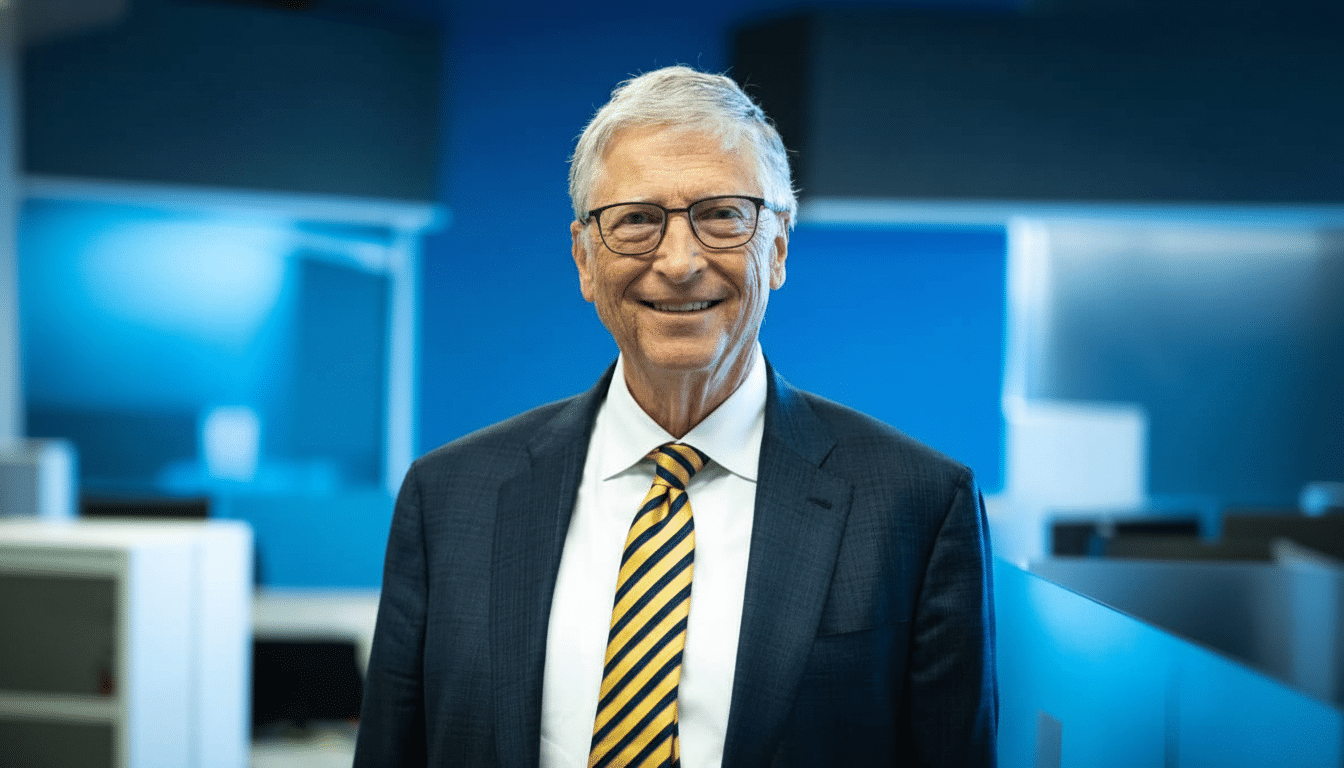There have been whispers that Bill Gates stated AI will never replace programmers. That claim misses the mark. In an interview that was widely viewed on CNN, Gates made a distinction between rote coding that AI can already do and hard engineering problem-solving that it still cannot consistently handle, but he emphasized his uncertainty only over how fast the gap is closed.
What Gates Actually Said About AI and Coding Work
Today’s systems could handle simple coding chores, Gates expressed to CNN’s Fareed Zakaria, but they fail on the most complex challenges. He stressed that the experts do not agree on timing — some anticipate rapid progress within a couple of years; others view a much longer runway. He also portrayed the issue as a productivity bonanza that could liberate humanity for higher-value work — coupled with the risk of economic disruption if change is so rapid that workers and employers cannot catch up.

To rephrase: Gates did not assert that AI will never replace programmers. He offered a spectrum: The automation end already has credibility with boilerplate, tests, and small features; in contrast, end-to-end system design, tricky integrations, reliability, and security are still human-led — for now.
The Productivity Context of His Comments
Industry data supports Gates’ framing. GitHub’s managed research discovered that developers were 55% faster at completing tasks with Copilot assistance, and the majority of them said they experienced less cognitive load for repetitive work. McKinsey research calculates generative AI can increase productivity in software development by 20% to 45% for tasks like code generation, documentation writing, refactoring, and test creation. These gains do not eliminate human roles; they reshuffle the mix of what humans do.
Leaders inside those large organizations have drawn attention to the increase of AI in code creation, but that doesn’t mean there will be fewer engineers. That more often than not actually means that senior developers ship more, while also having some time for spec’ing and review and coordination. Stack Overflow’s Developer Survey also shows that most professional developers are already experimenting with or using AI assistants on the job, suggesting that augmentation is becoming business as usual.
How Many Fewer Programmers Might Teams Need
Gates’ subtlety insinuates where labor markets might first give way: new hires. If AI takes on the beginner tasks — CRUD endpoints, unit tests, boilerplate frameworks — teams might even need fewer junior engineers per project. There are early signals from tech employers of slower hiring for pure junior roles, while demand remains robust for engineers who can architect systems, judge AI output, and handle production risks.

Yet longer-term outlooks are mixed. The Bureau of Labor Statistics still predicts robust growth for software developers. Two forces meet: efficiency reduces headcount for rote tasks, but software keeps eating the world in more domains, so there’s counteracting demand for human judgment where AI lacks skill — soft touch like vague requirements, safety, compliance, and socio-technical trade-offs.
What Changes For Developers In The AI Era
Gates’ remarks are in sync with a changing skills stack. Human leverage shifts towards problem framing, architecture design, data governance, threat modeling, and performance engineering, and code review of the AI artifacts. And in regulated industries — finance, health care, critical infrastructure — organizations are already constructing workflows where humans own specifications, constraints, and sign-offs while the AI drafts code and creates tests that must be checked.
Concretely, that means learning to write precise prompts, subdivide work into verifiable chunks, run automated suites of evaluations, and use static analysis and fuzzing to catch AI mistakes. It’s also about understanding licensing, provenance, and supply-chain risks in AI-suggested code — issues that open-source foundations and enterprise security teams are already heavily debating.
How To Read The Timeline For AI’s Impact On Work
Gates emphasized uncertainty, not inevitability, on a fixed timetable. The pace of migration varies by model reliability, integration with developer toolchains, organizational risk tolerance, and guardrails from auditors and regulators. Advances in reasoning, long-horizon planning, and formal verification might speed change; lingering hallucinations and brittle tools might slow it.
Bottom line: Gates is sober and conditional. AI is already soaking up a significant amount of coding work, especially repetitive tasks. The most difficult problems still require experienced engineers. Whether that balance tips suddenly or gradually will dictate how many entry-level jobs vanish, how much retraining is required, and the manner in which software teams are built. Prepare for augmented reality today — and greater automation pressure tomorrow.

